Locked up with no charge, Palestinian prisoners tell of pain and sorrow as they are freed in hostage exchange
Dozens of women and children released from prison in Israel were held without trial or charge, a practice rights group says violates international law, writes Bel Trew

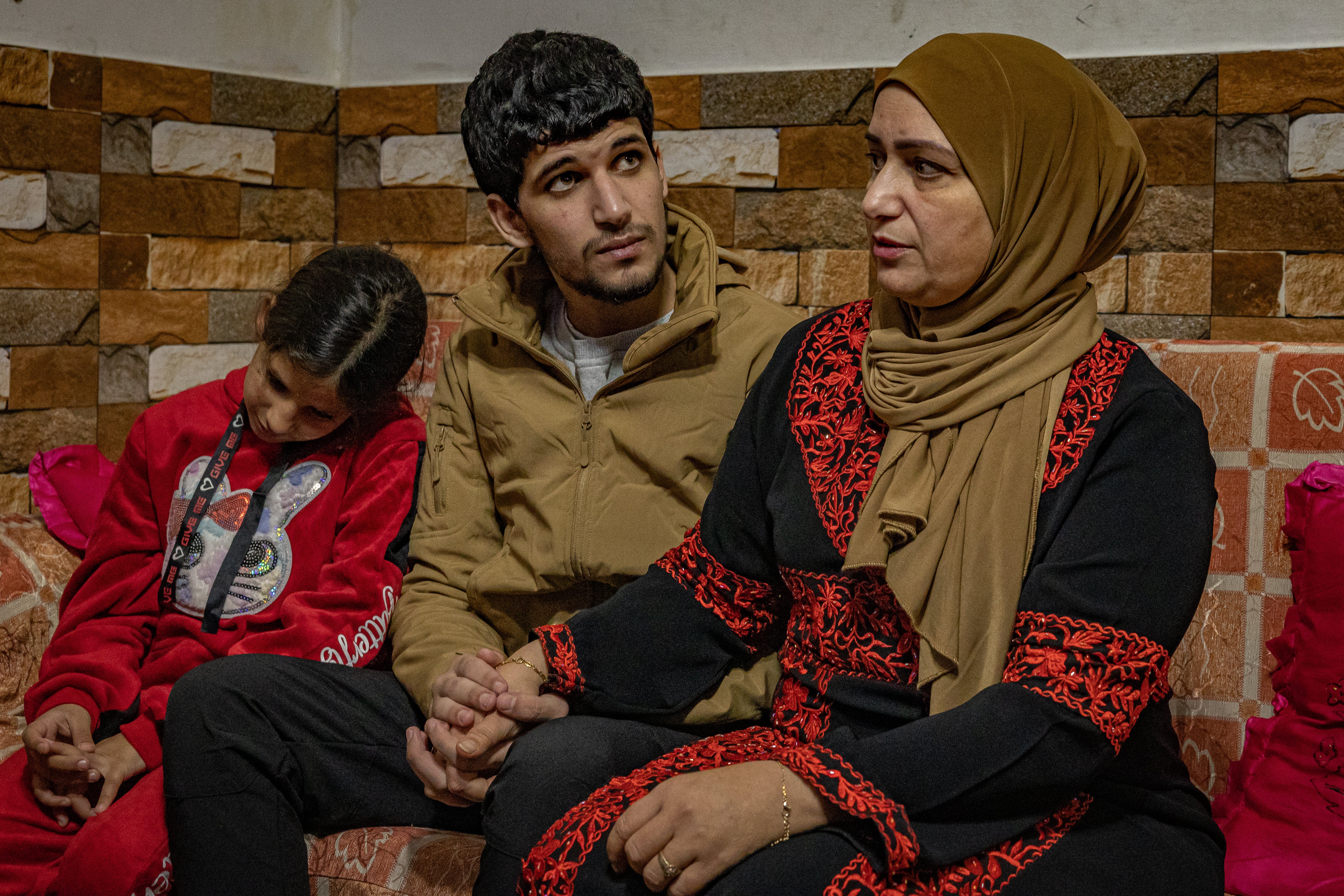
Your support helps us to tell the story
From reproductive rights to climate change to Big Tech, The Independent is on the ground when the story is developing. Whether it's investigating the financials of Elon Musk's pro-Trump PAC or producing our latest documentary, 'The A Word', which shines a light on the American women fighting for reproductive rights, we know how important it is to parse out the facts from the messaging.
At such a critical moment in US history, we need reporters on the ground. Your donation allows us to keep sending journalists to speak to both sides of the story.
The Independent is trusted by Americans across the entire political spectrum. And unlike many other quality news outlets, we choose not to lock Americans out of our reporting and analysis with paywalls. We believe quality journalism should be available to everyone, paid for by those who can afford it.
Your support makes all the difference.The 17-year-old Palestinian woke to the sound of his mother screaming as dozens of Israeli soldiers crashed through the front door of his family home and stormed into the bedroom.
“Are you Obada?” one shouted at the schoolboy at gunpoint, while another quizzed his younger brother lying in the bed next to him. This was June 2022.
Obada Khalil says he was questioned by Israel intelligence in Jerusalem for 38 days, and spent all but three of them in solitary confinement. His mother Badriya, 47, said she had no idea where her teenage son was and that he had no access to a lawyer.
He was eventually placed in administrative detention, which means being held without charge or trial, barred access to evidence against him – potentially indefinitely. It is a practice United Nations experts have denounced as unlawful as it could amount to arbitrary detention.
Released this week as part of the precarious hostage exchange between Hamas and the Israelis, Obada recounted his time in prison to The Independent from his home in Silwad, West Bank, shortly after he was freed on Sunday.
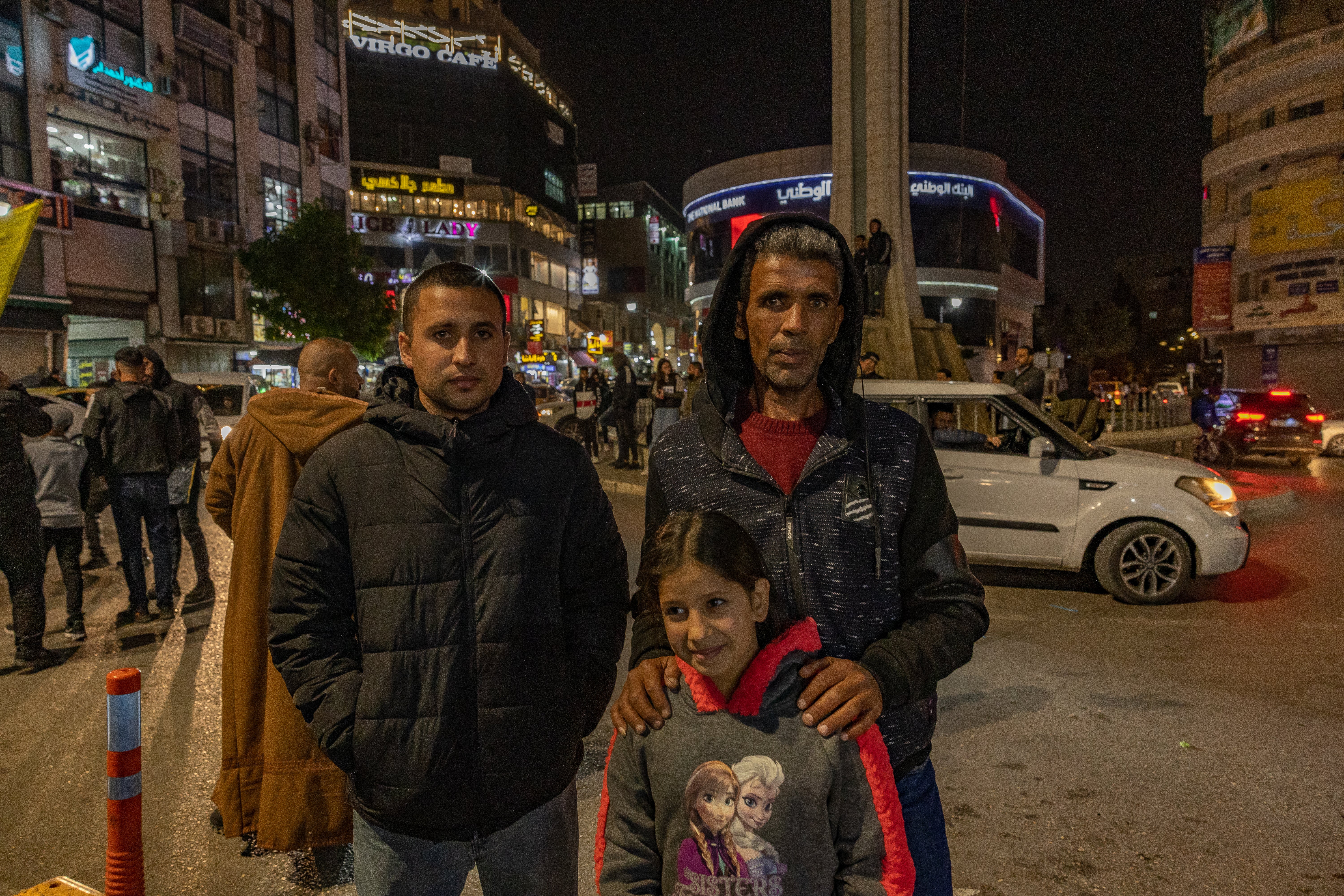
“They kept asking me if I had a weapon, I have never had one,” he said. “They kept saying ‘tell us something’. I had no communication with my family. This was the first time I had ever been arrested. I was terrified. You also can’t ask them why this is happening, and what you can do.”
The teenager, who says he is not affiliated with any political party, was held in Ofer Prison for 17 months, without charge or trial, or knowing what offence he had allegedly committed.
He was among dozens of Palestinian women and teenagers released from Israeli prisons as part of a Qatari-brokered deal between Israel and militant group Hamas.
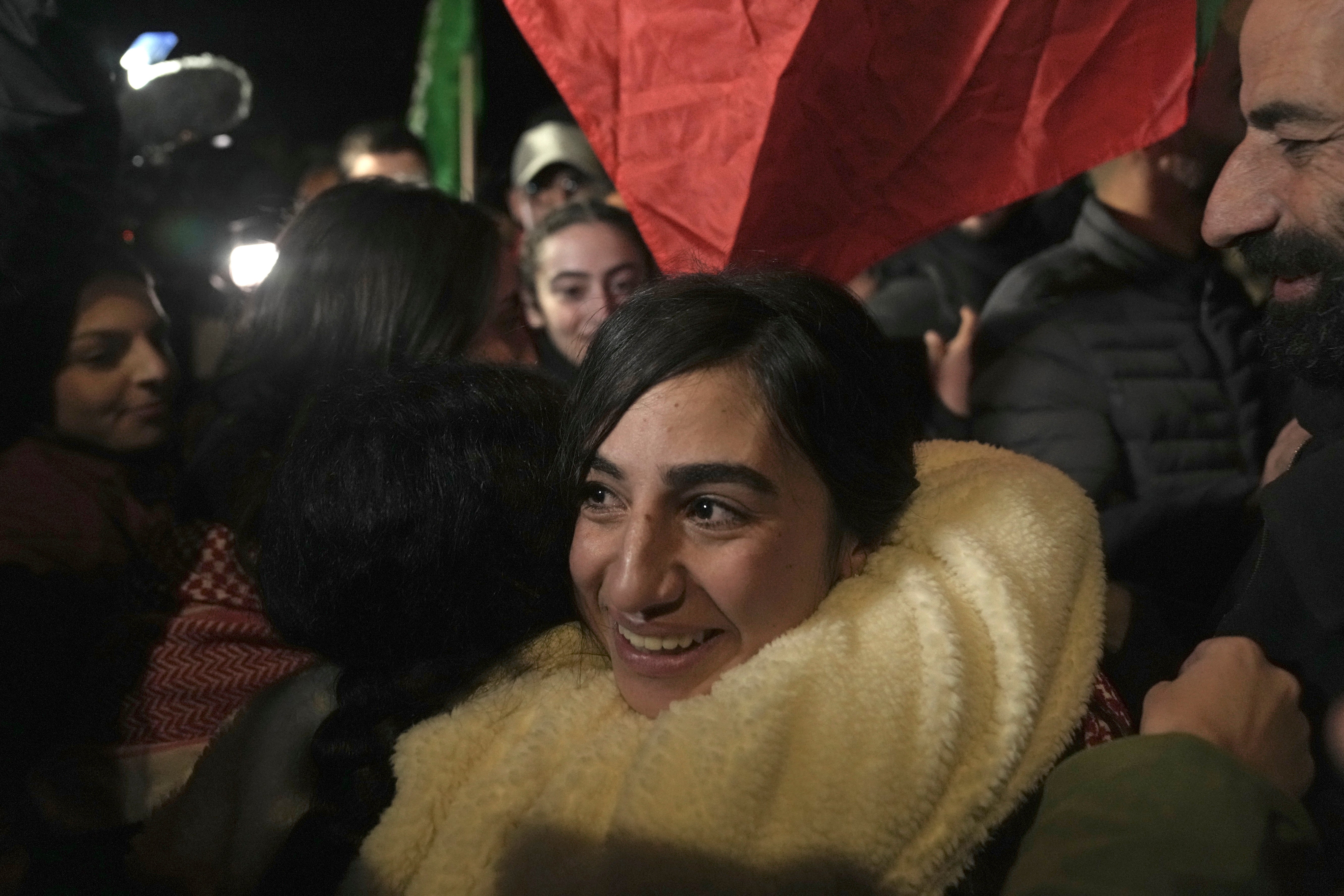
In total, 86 Israeli men, women and and children, abducted by militants in southern Israel during the 7 October attack, have been freed from captivity.
As of Wednesday 180 Palestinians have also been released – among them at least 12 children and 11 women who were held in administrative detention.
And so the hostage truce deal has shone a global spotlight on Israel’s prison system, the alleged use of torture, ill treatment (which Israel denies) and the practice of administrative detention.
The length of time a person under such detention can be held is indefinite. According to Palestinian rights group Addameer, the longest administrative detention period to date is eight years.
The Independent has approached the Israeli Prison Service, Ministry of Justice and Shin Bet intelligence agency but has yet to receive a reply.
The Israeli military said the increase in number of administrative arrests is “reflective of the sharp increase in attempted terror attacks in the region.”
They said administrative detention is utilized only in situations where the security authorities have “reliable information indicating that a real danger is posed by an individual to the security of the area, and in the absence of other alternatives for mitigation of the risk”.
They added that decisions with respect to administrative detention are taken on a case-by-case basis, and are based on “well-grounded information” regarding the case in question - and issued by a military commander, under a judicial review procedure is conducted by the military court.
But UN experts says it appears to amount to arbitrary detention, which is strictly prohibited under international law and international humanitarian law. There have been several cases of people turning to life-threatening hunger strikes.
“The arbitrary detention of children is particularly abhorrent, violating the minimum standards established by the Convention on the Rights of the Child,” the UN said in a 2021 report urging Israel to end the practice.
Ahmed, Obada’s older brother, told The Independent that Palestinian families are powerless to do anything.
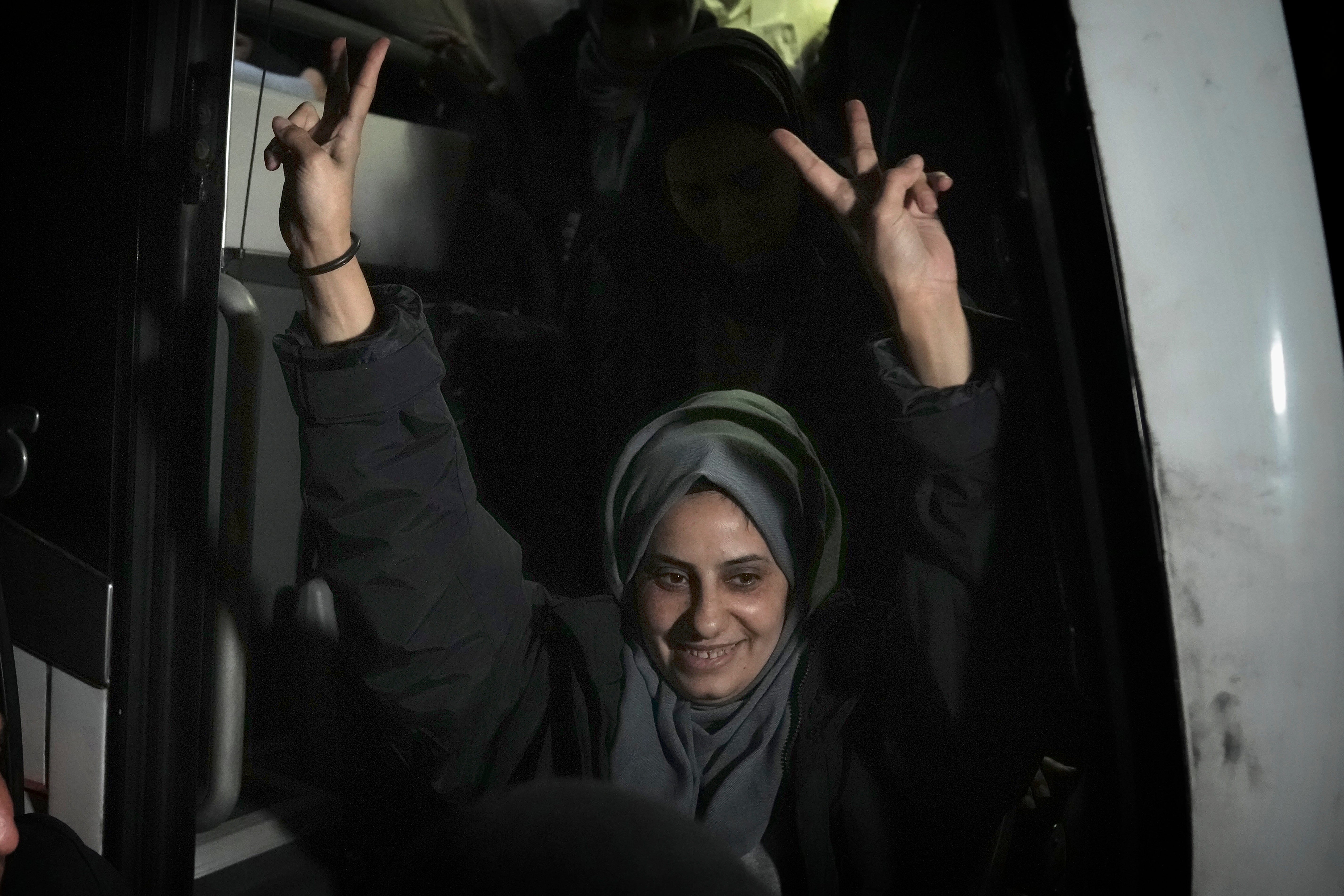
“In a normal civilised country the person is innocent until proven guilty,” said the 25-year-old. “Here, you are guilty until proven innocent and then even then with administrative detention you cannot prove you’re innocent. You do not even know what you’re guilty of.”
At the moment there are believed to be 2,200 people in administrative detention, the highest number ever recorded, according to Addameer and Amnesty. The numbers have surged since 7 October.
Tala Nasir, Addameer’s spokesperson, said there had been a “mass campaign of arrests” with 80 per cent of those detained in administrative detention, first used by the British mandate administration in the 1930s.
Among them is one of the most high profile Palestinian activists, Ahed Tamini, 22, who was arrested on 6 November and is slated to be released as part of the hostage release deal on Wednesday.
The spokesperson warned that the numbers will only rise as the war on Gaza drags on: “There is no guarantee that the people who were released are not arrested again.”
Speaking from Ramallah, Mustafa Barghouti, a prominent Palestinian lawmaker and a president of the Palestinian National Initiative, said administrative detention has become an “instrument of revenge” and is designed to make people afraid of speaking out, even on social media.
He said more people have been arrested since 7 October than have been released: “It allows Israel to arrest people for no reason. It’s an instrument of oppression and control.”
Amnesty International’s Heba Morayef said administrative detention is also “one of the key tools through which Israel has enforced its system of apartheid against Palestinians”. Israel has vehemently rejected this characterisation.
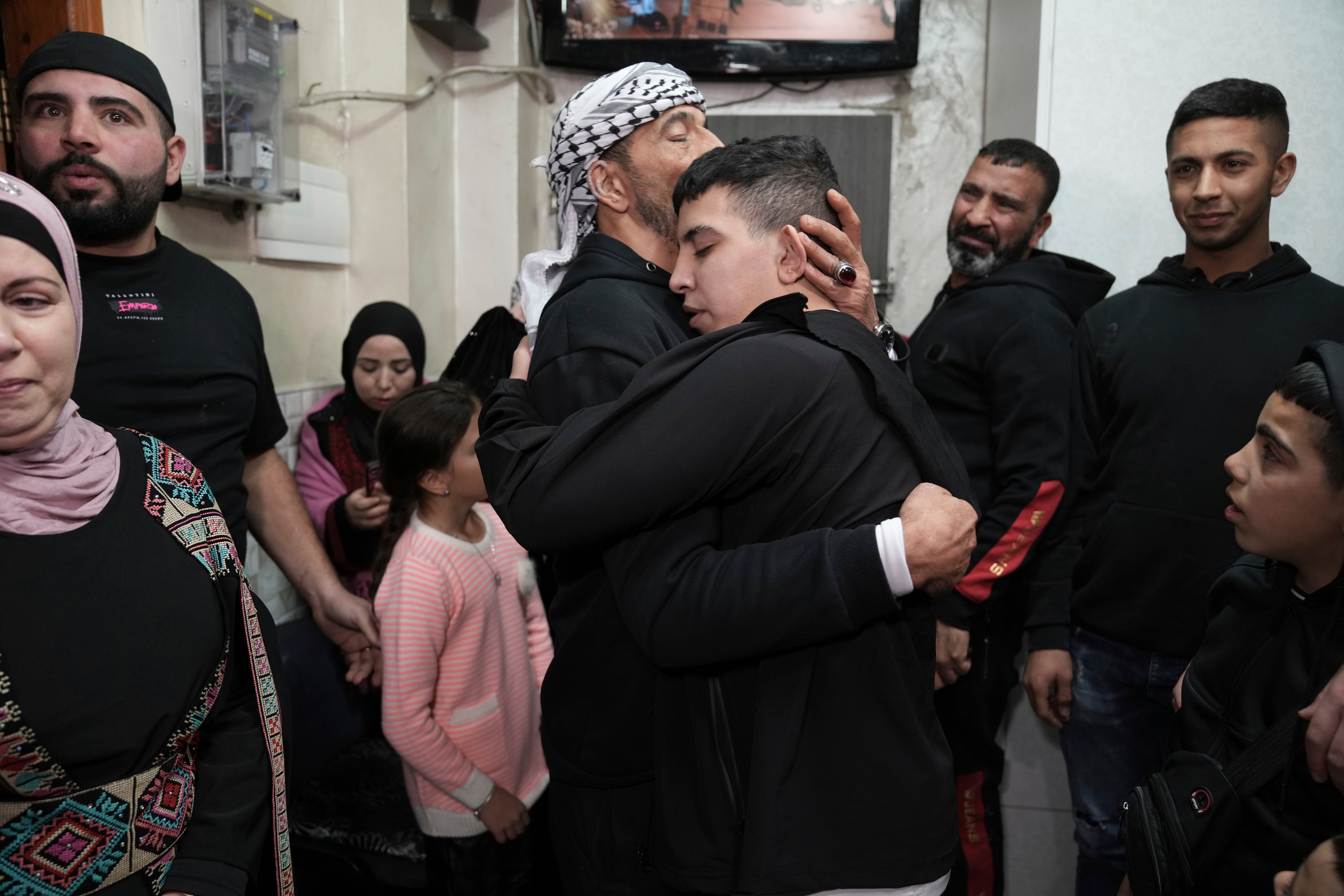
Israeli ambassador to the UN Gilad Erdan has called apartheid allegations “a Jihad war against the only vibrant democracy in the Middle East”.
Hanan Barghouti, 59, (not directly related Mustafa Barghouti) was also in administrative detention since September and was released on the first day of the Israel-Hamas truce. She says it is “collective punishment”.
In total 15 members of her family are in administrative detention, most of them arrested after 7 October.
Ms Barghouti comes from a family that is no stranger to the inside of Israeli jails – her brother Nael is considered Palestine’s longest political prisoner (Israel denies it detains political prisoners).
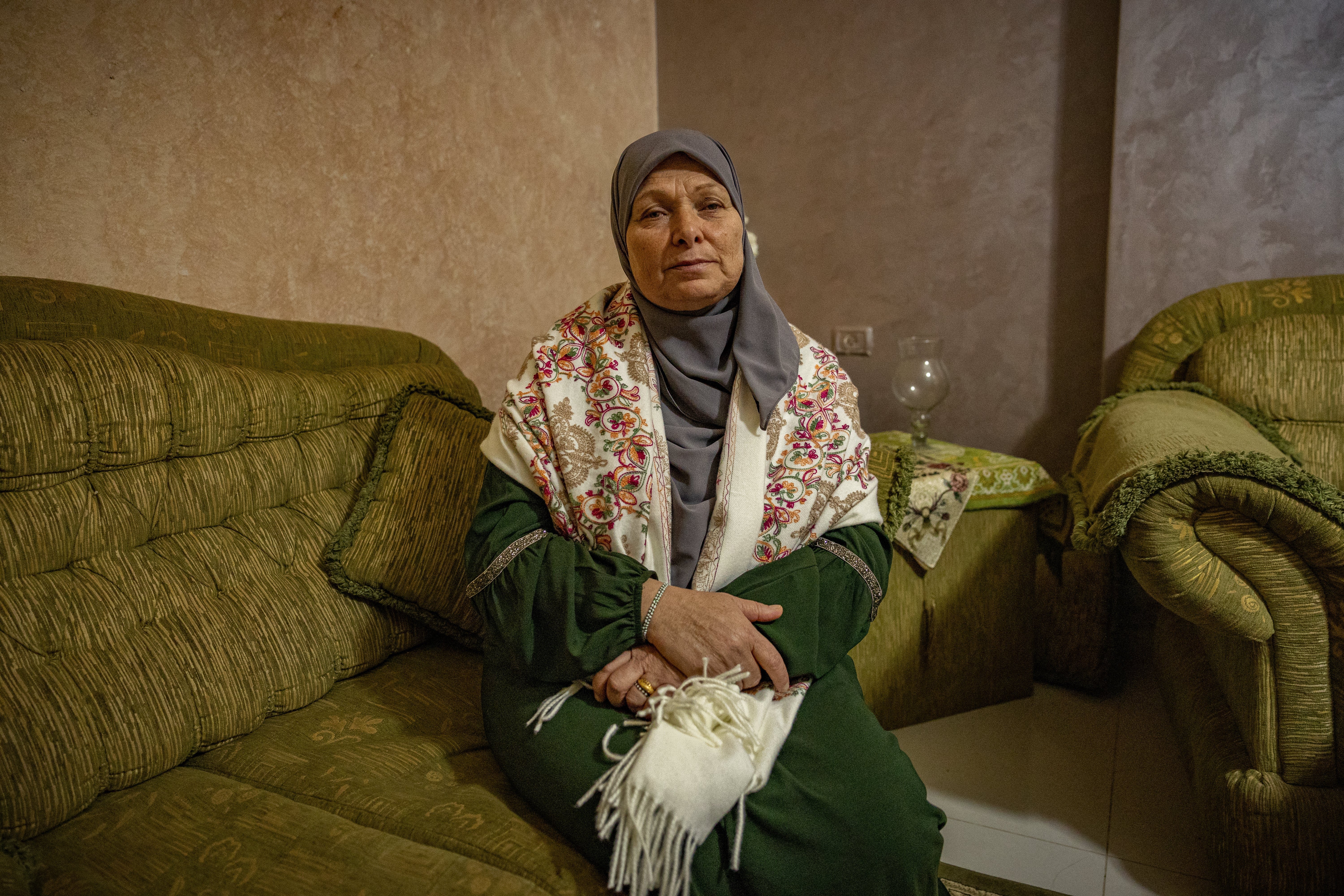
He has been in and out of detention since he was first arrested 44 years ago, for engaging in attacks against the Israeli military. He was re-arrested in 2014 for “Hamas membership” according to Israeli media.
Ms Barghout says in September, like Obada, members of the security service stormed her house at 3am and arrested her when she was sleeping beside her husband.
“It’s terrifying to wake up to dozens of soldiers in your house, and an intelligence officer in your face telling you you’re being arrested,” she said. “I was sick with the coronavirus at the time. I had an appointment scheduled with a cardiologist. They took me anyway.”
She said there was no real interrogation: “They asked me if I was `Hamas? I said no. They asked me if I had a lawyer – I said yes. My lawyer said the order for administrative detention was already sorted before they arrested me.”
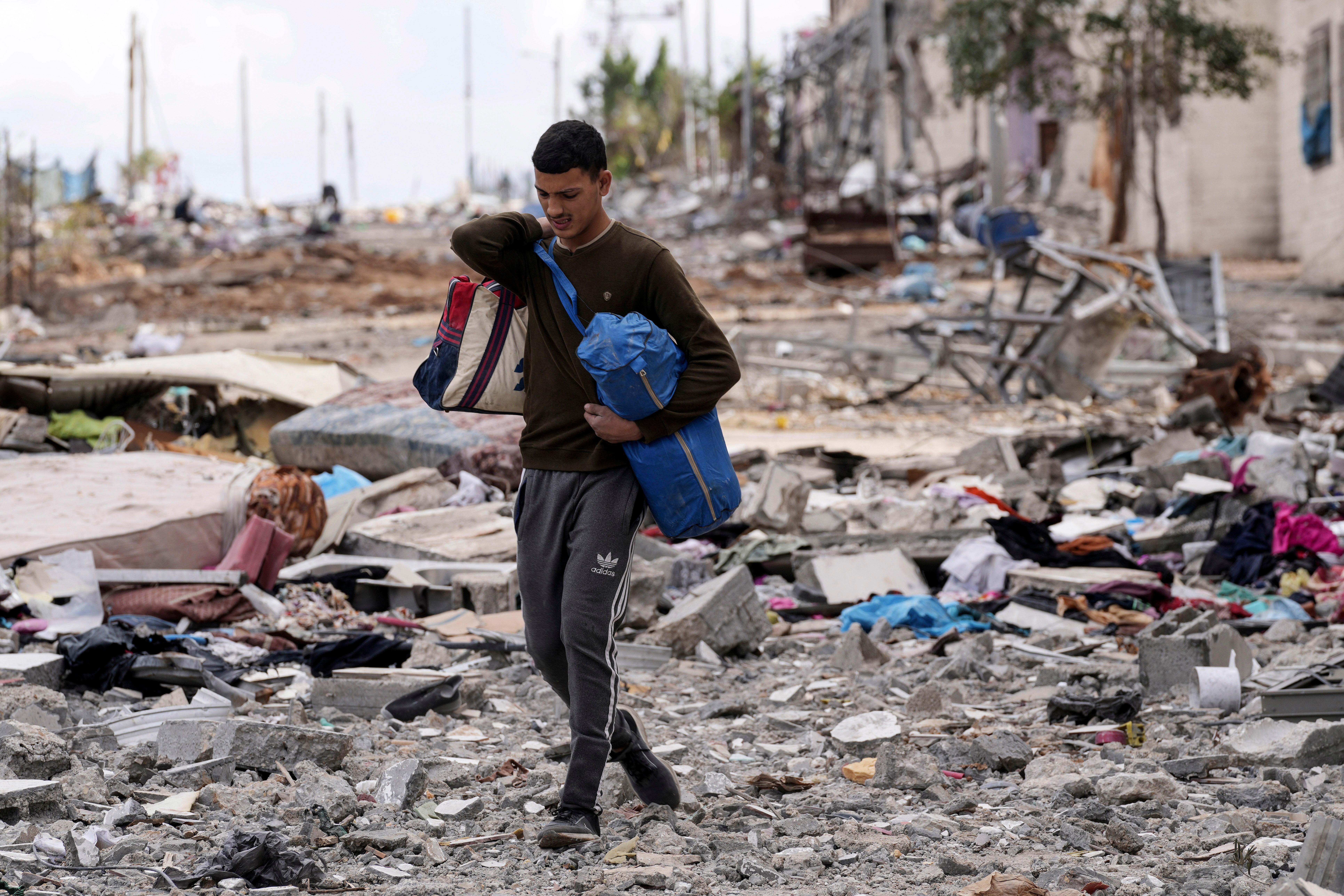
Ms Barghouti said that being released was one of joy mixed “with a lot of a lot of pain” as she left fellow inmates behind bars in worsening conditions.
Amnesty said they have documented mounting evidence of torture, with detainees stripped, beaten and humiliated, something that The Independent has also documented.
Addameer said they have documented a surge in “brutal” beatings, threat of murder and rape, use of police dogs, destruction of homes. Inside prison, Palestinian detainees said conditions significantly deteriorated after 7 October.
Both Ms Barghouti and Obada said personal belongings were confiscated including clothes, even shoes from people’s feet. They said connection with the outside world was cut, including family visits, access to TVs and radios.
The only news of the developing war was from newly arrested prisoners. They said they were not permitted to go to the exercise yard and see the sun.
Obada’s family said the soldiers ransacked their house looking for alleged weapons and they are still confused why he was arrested in the first place. They are worried more family members will end up behind bars – Badriya’s nephew, Obada’s cousin, was arrested a week ago and is now also in administrative detention.
“For Palestinians administrative detention is becoming normal, it is becoming a kind of collective punishment for us all,” Obada continued.
“It is becoming a part of life – it is a sword about our head that we have no power to cancel or to change. Even the lawyer cannot do anything – to whom can you complain when the oppressor is your judge?”
Join our commenting forum
Join thought-provoking conversations, follow other Independent readers and see their replies
Comments